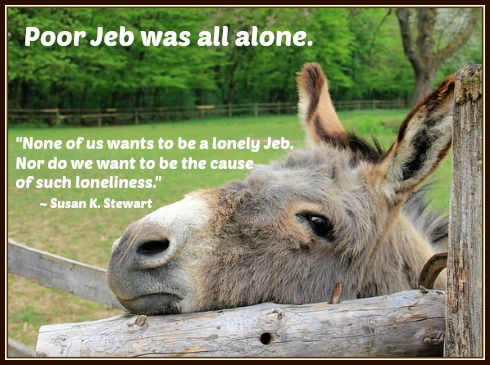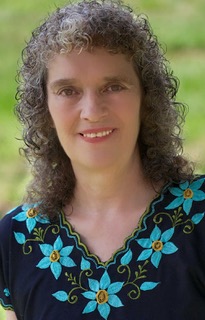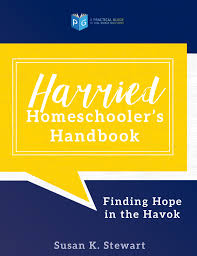Now He's Alone
Susan K. Stewart is a creative writer, often using what is at hand to teach powerful, practical scriptural truths. In this Hope UPGRADE, she asks us to consider her donkey friend, Jeb.

"Being alone is not pleasant for any of us," Susan says. "Loneliness is made harder because it’s a pain that can’t be seen."
I (Dawn) also believe the pain of loneliness is real, and it's been magnified by the coronavirus lockdowns and restrictions. God has a word of comfort for the lonely, and sometimes He speaks through unusual means—even a donkey's soulful bray.
Susan continues . . .
Jeb hadn’t always been alone. He had family and friends nearby when we met him. Gradually though, they all seemed to move on, leaving him a sad, lonely donkey.
Our life with donkeys began with three jennies from a camp for special needs children. We adopted three of the five therapy animals: Georgia May, Hope, and Shawna. Our neighbor took in the other two: Ellie May and Jeb.
Even though the tiny herd was split up, they stayed in touch with occasional brays. Daily we could hear them chatting back and forth. Even though they couldn’t see each, the “family” knew they were all close by.
A couple of years later, we needed to re-home our three girls. Although the daily family chatter stopped, we could still hear Ellie May and Jeb converse, usually to anyone who would listen.
A few months later, Ellie May disappeared. We don’t know how she got out of the pasture, where she went, or why Jeb didn’t follow.
Now he was alone.
We could hear it in his calls. It sounded as though he were asking, “Where are you?”
Soon the cries for his family decreased, then stopped. Oh, Jeb still joined with other donkeys in the area with the morning donkey grapevine. But he no longer hollered for his family. They were gone.
As time went on, more of the donkey neighbors moved. The morning chatter stopped. No more friendly bantering catching up on the pasture news.
Eventually Jeb moved to our pasture. Our pasture is situated where he can see us throughout the day. While he was acclimating to his new home, we often went out to be sure he knew where the sweet feed was at, make his way to the hay feeder, and be sure he couldn’t work his way out of the gate. He only brayed to announce he was ready to eat.
He was still alone.
Sadly, there are Jebs all around us. People left behind for a number of reasons: friends and family move, a death of loved one, social distancing, and in our overly fast world no one has time to visit. Calls are made for awhile, but eventually when no one answers, they stop.
None of us wants to be a lonely Jeb.
Nor do we want to be the cause of such loneliness.
The writers of Hebrews tells us:
“And let us consider how to stir up one another to love and good works, not neglecting to meet together, as is the habit of some, but encouraging one another, and all the more as you see the Day drawing near” (Hebrews 10:24-25 ESV).
Here we have an outline to stave off aloneness.
1. The core of these verses is “not neglecting to meet together.”
This doesn’t only apply to attending functions at church. We can meet others where they are at—a coffee shop, their home, a care facility.
In our current world of social distancing and quarantines, it’s too easy to neglect basic fellowship. For those who are house bound, a simple phone call is all that is needed to let them know family and friends are still near—for “meeting together”
2. We’re also told to encourage one another.
One definition of encouragement is “the action of giving someone support, confidence, or hope.”
I like the word “hope,” giving someone hope as a way of encouraging.
Doom and gloom seem to be all around us. We need to depend on each other for positive reports, positive conversation, even positive social media—for hope.
During this time of economic difficulties, encouragement can come in the form of a bag of groceries or a gift card.
Any way we can let others know we see them and we care gives needed support for confident hope.
3. It’s after we reach out and give support we can help “stir up love and good works” in others.
A lonely person may be like our Jeb—going through the motions of each day, but no desire to do much more.
Through our actions, the Jebs in our lives can see love and good works, then move on to share to with others.
Each of us, even when surrounded by others, can feel abandoned and alone. We can even feel God has deserted us. We don’t seem to hear him.
Think of all those who have gone before us who had the same emotions.
- David wrote, “How long, O Lord? Will you forget me forever?”
- How much more alone could Jonah have felt?
- Jesus cried on the cross, “My God, my God, why have you forsaken me?” (Mark 15:34)
Then came the morning. God was there. He is there.
While we may be alone for a while, we are never deserted. Our companion, Jesus Christ, is walking with us, even when we don’t see him.
Do you feel alone? How can you move from loneliness to hope to encouragement?
 Susan K. Stewart is the Managing Nonfiction Editor with Elk Lake Publishing Inc. She tends her donkeys, chickens, and various other creatures with her
Susan K. Stewart is the Managing Nonfiction Editor with Elk Lake Publishing Inc. She tends her donkeys, chickens, and various other creatures with her  husband Bob on a small ranch in Central Texas. Susan’s passion is to inspire readers with practical, real-world solutions. Her book, Donkey Devos: Listen to your donkey when God speaks, is due out early next year. Learn more at her website: www.practicalinspirations.com.
husband Bob on a small ranch in Central Texas. Susan’s passion is to inspire readers with practical, real-world solutions. Her book, Donkey Devos: Listen to your donkey when God speaks, is due out early next year. Learn more at her website: www.practicalinspirations.com.
Graphic adapted, courtesy of Anna ER at Pixabay.
 Post a Comment → Posted on
Post a Comment → Posted on  Thursday, September 24, 2020 at 9:33AM
Thursday, September 24, 2020 at 9:33AM  Donkey,
Donkey,  Encouragement,
Encouragement,  God's Presence,
God's Presence,  Hope,
Hope,  Loneliness,
Loneliness,  Lonely,
Lonely,  Lonely donkey,
Lonely donkey,  Never alone,
Never alone,  Susan K. Stewart,
Susan K. Stewart,  Susan Stewart,
Susan Stewart,  Upgrade with Dawn Upgrade Your Life
Upgrade with Dawn Upgrade Your Life  Encouragement,
Encouragement,  Hope
Hope 



